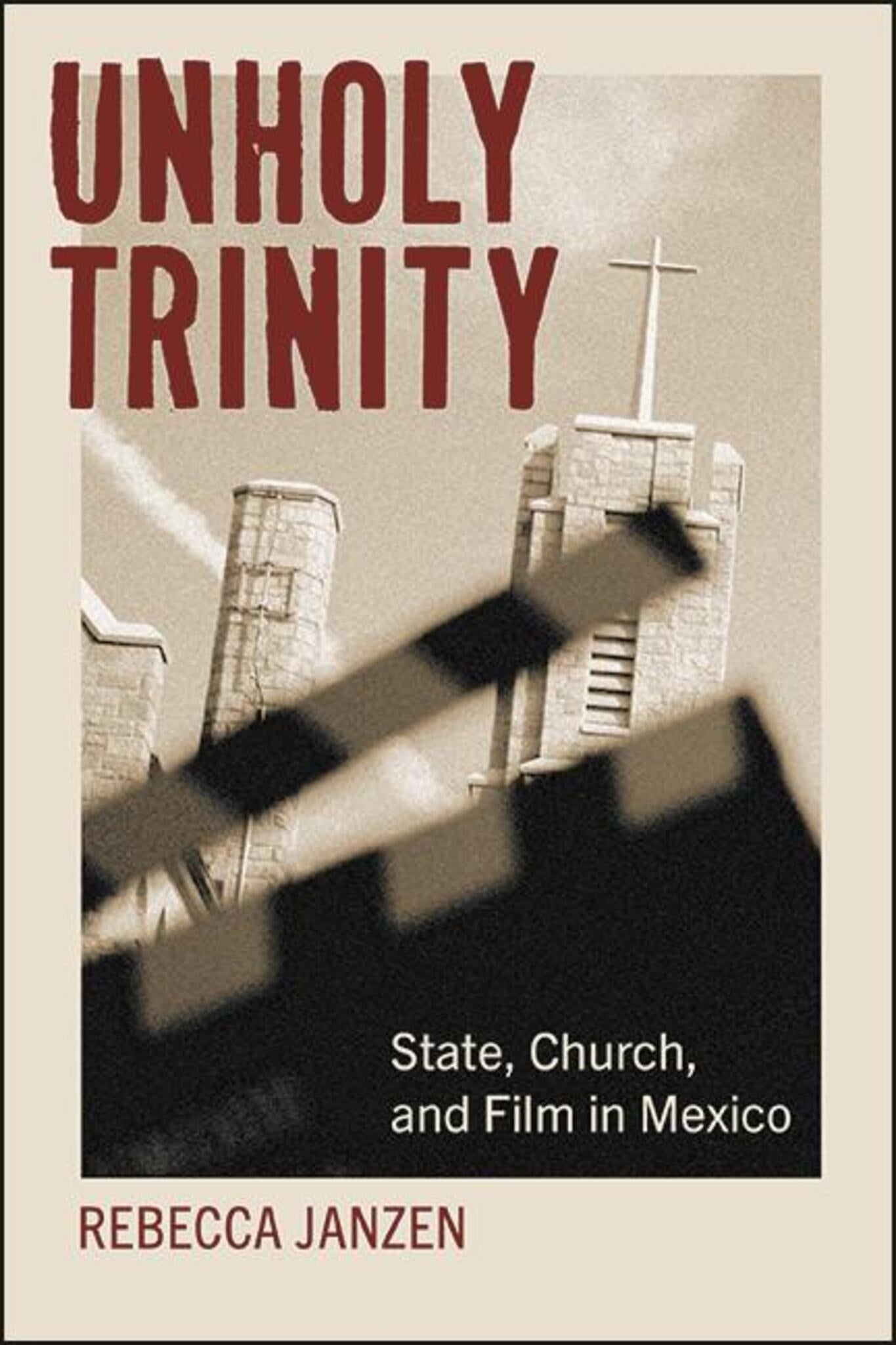We're sorry. An error has occurred
Please cancel or retry.
Unholy Trinity

Some error occured while loading the Quick View. Please close the Quick View and try reloading the page.
Couldn't load pickup availability
- Format:
-
02 January 2022

Examines representations of religion in Mexican film from the Golden Age to the early twenty-first century.
Rebecca Janzen brings a unique applied understanding of religion to bear on analysis of Mexican cinema from the Golden Age of the 1930s onward. Unholy Trinity first examines canonical films like Emilio Fernández's María Candelaria and Río Escondido that mythologize Mexico's past, suggesting that religious imagery and symbols are used to negotiate the place of religion in a modernizing society. It next studies films of the 1970s, which use motifs of corruption and illicit sexuality to critique both church and state. Finally, an examination of films from the 1990s and 2000s, including Guita Schyfter's Novia que te vea, a film that portrays Mexico City's Ashkenazi and Sephardic Jewish communities in the twentieth century, and Carlos Carrera's controversial 2002 film El crimen del padre Amaro, argues that religious imagery-related to the Catholic Church, people's interpretations of Catholicism, and representations of Jewish communities in Mexico-allows the films to critically engage with Mexican politics, identity, and social issues.


List of Illustrations
Acknowledgments
Introduction
1. Negotiating a Place for Religion in a Developing Economy: Catholicism in the Golden Age
2. Catholicism at Its Wit's End: Priests, Madams, and Sex Workers
3. Complex Religious Expression without Redemption: Catholicism, Syncretism, and Judaism
Conclusion
Notes
Works Cited
Index



